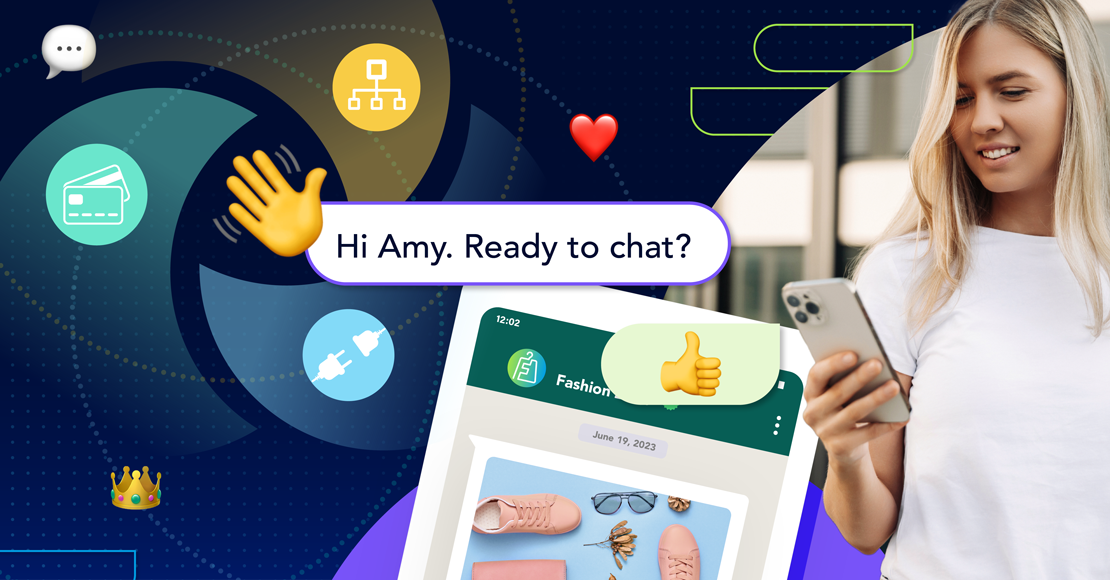
Applications of AI in the travel industry
With travel becoming a more frequent feature in our lives, applications of artificial intelligence have truly helped to create a better, more seamless booking or buying experience for customers. Now that more customers are traveling with mobile digital devices for work or personal reasons, it’s a wonderful opportunity for tourism businesses to ‘get personal’ with their customers.
Since the rise in on-demand 24-hour service in the travel and tourism industry, chatbots have never been more necessary. Be it for booking purposes or simply to acquire certain information at the moment, most on-the-go individuals need professional guidance from a travel agent immediately. Even though many of these industries already offer customers a flexible self-booking system, just having a trustworthy assistant guiding you through the booking process could make customers feel more at ease.
Related: 3 Ways chat apps can improve CRM in the travel and hospitality industries
What to expect from travel bots
Apart from general inquiries, more airports and travel services will start to see automated tasks being taken over by bots… even in their physical form. Kansai International Airport has recently debuted their robot kiosk. Also known as Kate, she will make her way over to busy or congested areas of the terminal as needed. The reason for her existence is to reduce check-in queues, and she'll operate by processing data related to passenger flow. This will then obviously reduce passenger waiting times.
Over and above using applications of artificial intelligence to improve the customer experience at the airport, there are various ways in which booking companies can improve their user experience. One of the main ones is to reduce the funnel time spent booking and planning a trip. Of course, first-time travelers will be spending more face-time with travel agents to help wrap their heads around the packages, but frequent travelers should be able to enjoy a faster, more effective process.
Learning how to reflect multiple variables
When brands design chatbots, they need to have the end-user or experience in mind. Because travel is such a complex industry where people want different things at different times, chatbots need to be able to solve all of these problems and needs at the same time. Your bot needs to serve as a customer care center, servicing customers in any destination and in any language, during, and after working hours.
If it’s your first time experimenting with a travel bot, start by understanding the purpose of your bot and being able to communicate this purpose with your customers. If there is a particular process in which customers will need to interact with your bot, let them know too. After all, the reason for deploying a chatbot in your business is by no means to eliminate any human contact and make people feel weird about speaking to a bot, it’s simply to streamline and speed up any time-consuming processes. Which, in turn, makes it easier for the customer. Here are a few ways to use your chatbot to improve your customers’ travel experience:
Your chatbot is a new digital touchpoint
In order to offer a platform that adds value to your customers’ lives, you need to know what it is that they need. With so many interactive channels already available, there’s no excuse for businesses to not be listening to their customers’ feedback, and adjusting their offerings accordingly. A chatbot can bring your business plenty of success if you’re using it for the right reasons.
Accentuate customer engagement
A humanized chatbot can speak to your customers and offer them the exact same customer experience they would receive in-store but in a faster and more personalized way. For example, based on your customers’ searches on your website, you should be able to formulate multiple package options to suit their budget and needs. Once the customer has placed a booking on your site, your bot will start sending out automated reminders about their reservations in advance. This can be done via social media, text message, or email. Your bot can even interact with your customer post-trip to ensure that everything went as planned. At the end of the day, you need to ensure that your brand isn’t a one-off experience. It’s all about incorporating your business into your customers’ life on a daily basis, without being disruptive.
Applications of artificial intelligence augment your staff
The great thing about chatbots is that they have the ability to do things faster than a human can. Knowing this, tourism businesses such as hotels and restaurants would be able to find actionable insights into what they could change to improve their customer experience. Of course, front-of-house departments, air hostesses, and travel agents will still be needed in times where customers require face-to-face time, but as far as online sales and services go, leave everything to the bots. These tasks will be tackled at lightning speed, maximizing profit, and boosting customer service.
Create upsell opportunities
According to this article, Google reports that 65 percent of holiday travelers and 69 percent of business travelers go online to plan their travel. This is a clear indication that you should be going above and beyond to give your customers the best possible online experience. Brainstorming marketing trends and ideas in this field will give your business an opportunity to increase revenue and drive ROI in a small period of time.
Quick access to data
One of the core functions of a chatbot is to gather and process data for businesses. Through this data, you’ll be able to gain valuable insight into customer behaviors that could help change your products, services, or customer experience at large. Each conversation and interaction is recorded for future connections, making customer experiences a whole lot more personalized than before.
Future applications of artificial intelligence
The future of applications of artificial intelligence in the travel industry is automated and streamlined. Before you can implement a successful bot, you need to have a clear idea of where it would benefit your company in your sales funnel. If there are roadblocks in your customer service, try and implement a platform such as Clickatell’s Touch to improve these hiccups. Focus on one or two key functions before you allow your bot to take over your entire digital presence. The more they’re incorporated into the ecosystem, the better data and insights you’ll have at your fingertips.
To learn more about how Clickatell Touch can help your travel or tourism brand engage with your customers anywhere and anytime, read our recent article about CRM in travel.
Explore other articles
Step into the future of business messaging.
SMS and two-way channels, automation, call center integration, payments - do it all with Clickatell's Chat Commerce platform.








